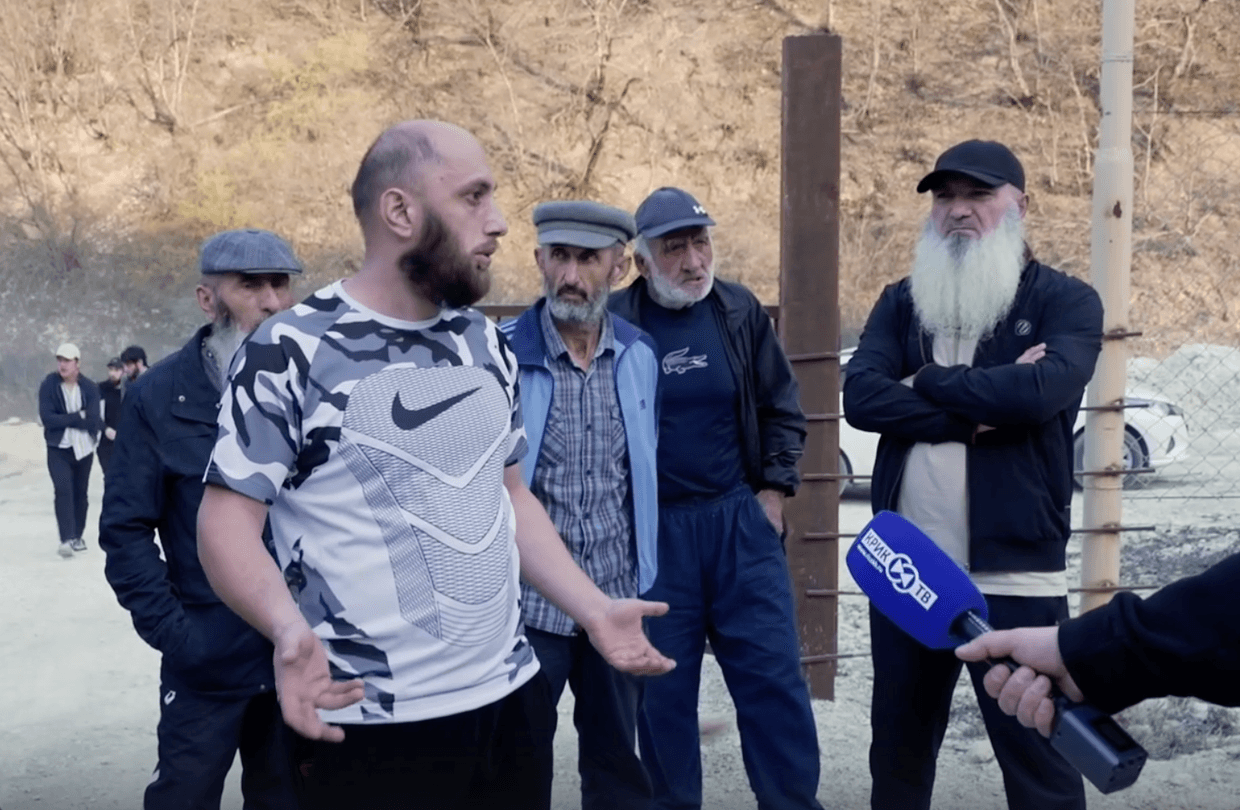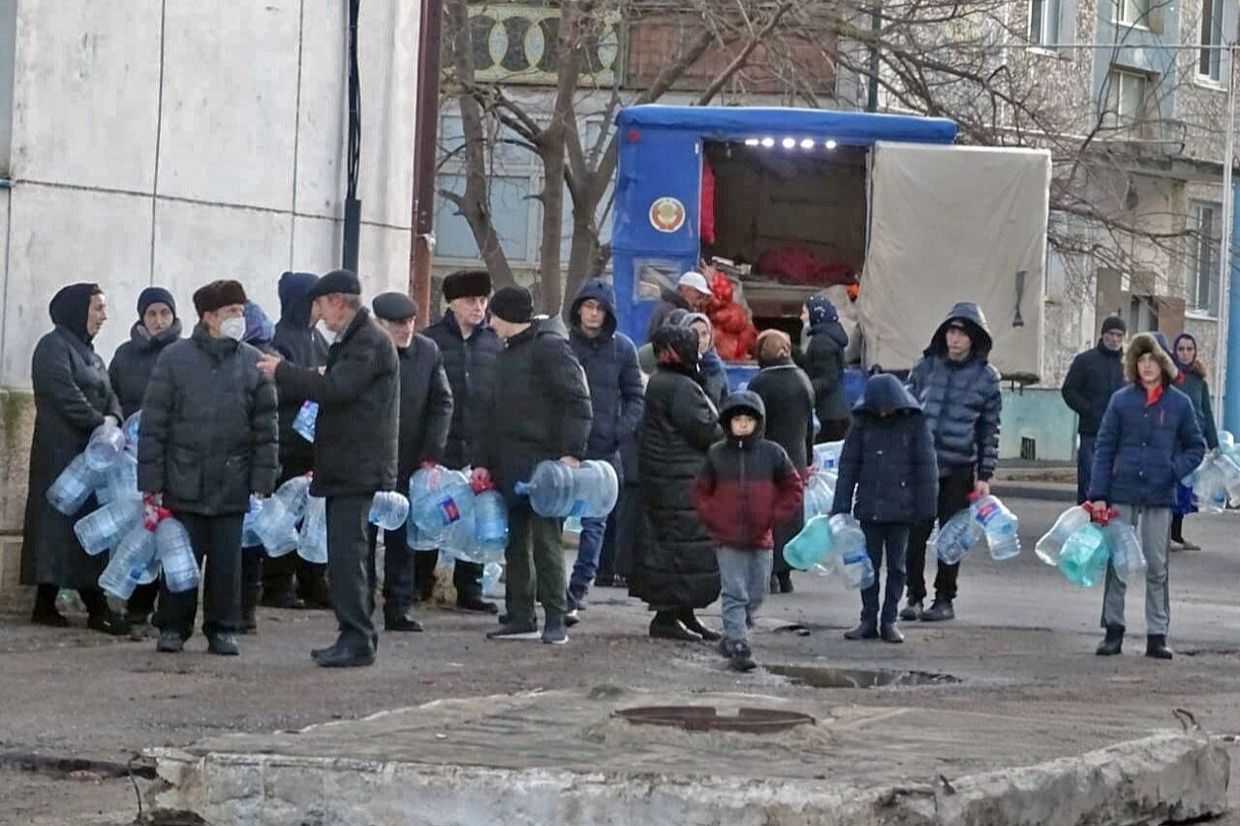
Residents of Gulli, a village in the Kaytagsky District of Daghestan, have voiced concerns over the operations of a local quicklime production plant, claiming that industrial waste is polluting the air and contaminating drinking water. They are demanding that the factory be shut down and that the activities of the village head, Islam Gamidov, be investigated.
On 28 March, the federal TV channel Krik-TV (self-declared as independent media) aired a report in which locals stated that waste from the plant was entering the river Artuzen, which supplies drinking water to Gulli and neighbouring villages. Villagers have linked their worsening health to the presence of lime dust in the air and report that 15 houses have sustained damage due to blasting operations in the quarry.
The same day the report was aired, a Krik-TV journalist attempted to interview Gamidov. At first, Gamidov refused to speak, but later claimed he was unaware of any quicklime production in the village, stating that the ‘factory is not operational’. He also asserted that an inspection by Rospotrebnadzor, the Russian agency responsible for overseeing consumer rights protection and public health, confirmed the water’s purity but was unable to provide the test results.
Locals report that construction of the factory began in 2016, and that it began producing lime in 2024. They insist it was originally intended to be a site for crushed stone extraction, not the production of quicklime. Public hearings on the construction were reportedly never held — a claim confirmed by the plant’s director. When Krik-TV’s filming crew visited the site, they observed heavy machinery, piles of limestone, and sacks of finished lime product.
Prior to the television report, on 16 March, Gulli residents addressed an appeal to the Head of Dagestan, Sergei Melikov, calling for the plant’s closure and an investigation into the conduct of the village head. They alleged that Gamidov supports the plant’s operations and has threatened critics, accusing them of extremism and links to destabilising forces abroad.
Arbakhan Isakov, a resident of Gulli, told OC Media that villagers began experiencing health issues from the moment the plant started operating.
‘Children feel unwell, they can’t go outside. Fish are dying. The river water is needed for irrigation, but now it can’t be used’, Isakov said.
On 17 March, the Ministry of Natural Resources of Daghestan published the results of water samples taken from the Artuzen River. The ministry stated that both the air and water were within regulatory limits, although the water showed elevated levels of certain pollutants. The agency is now preparing documentation for an unscheduled inspection of LLC Gulli.
On 19 March, deputies of the Daghestan People’s Assembly discussed the situation in Gulli. MP Uzlipat Gasanova visited the village and met with residents, promising to arrange an environmental assessment.
According to publicly available records, LLC Gulli was registered in October 2016. Its primary business activity is listed as the extraction of decorative and building stone, limestone, gypsum, chalk, and slate. The general director is Mirzamagomed Sheykhov, who is also one of the company’s four listed founders.









